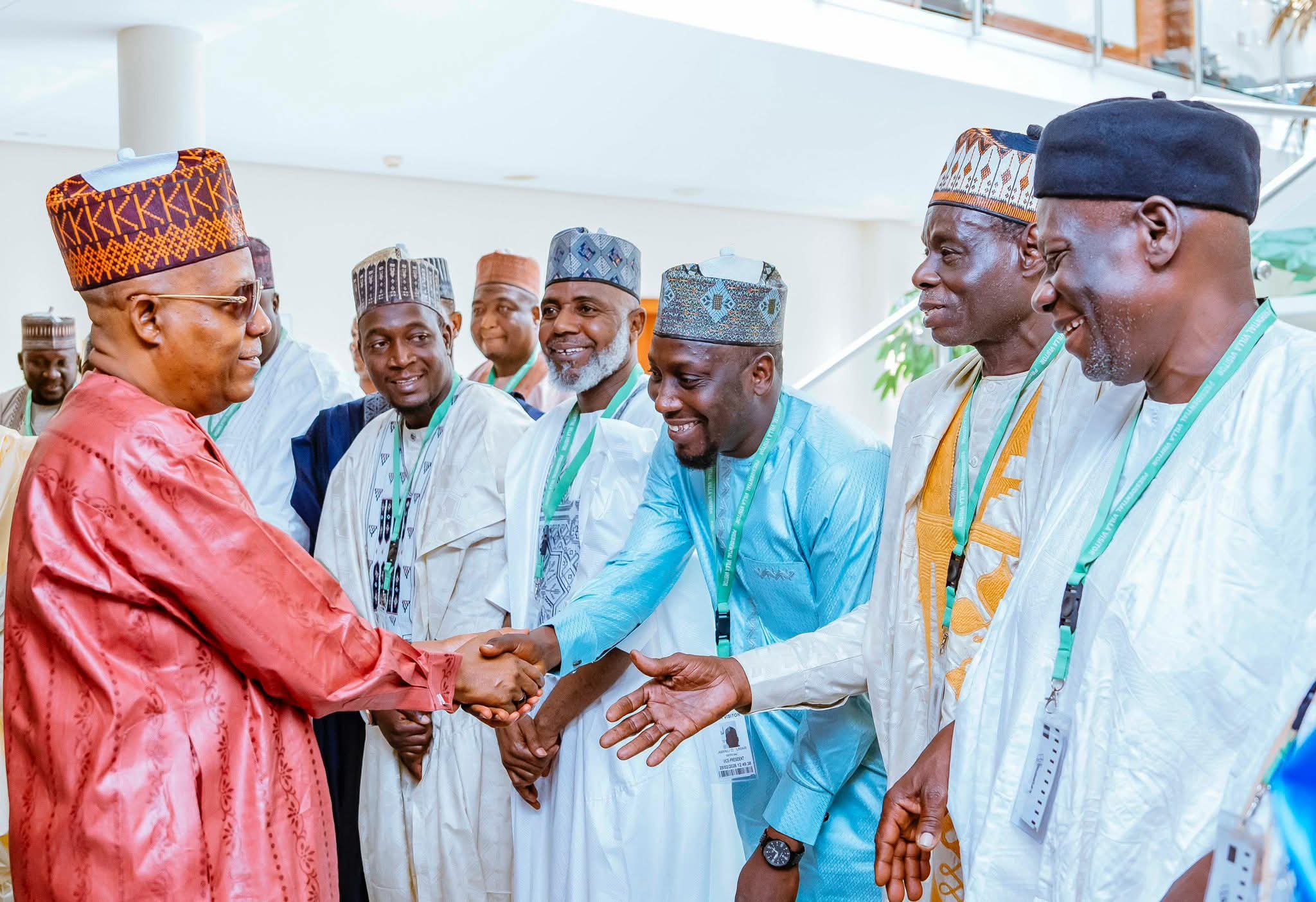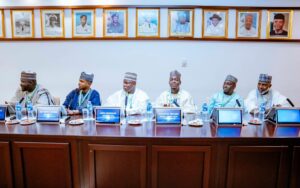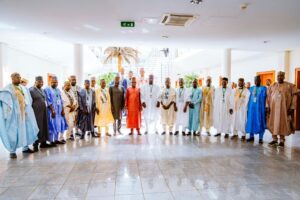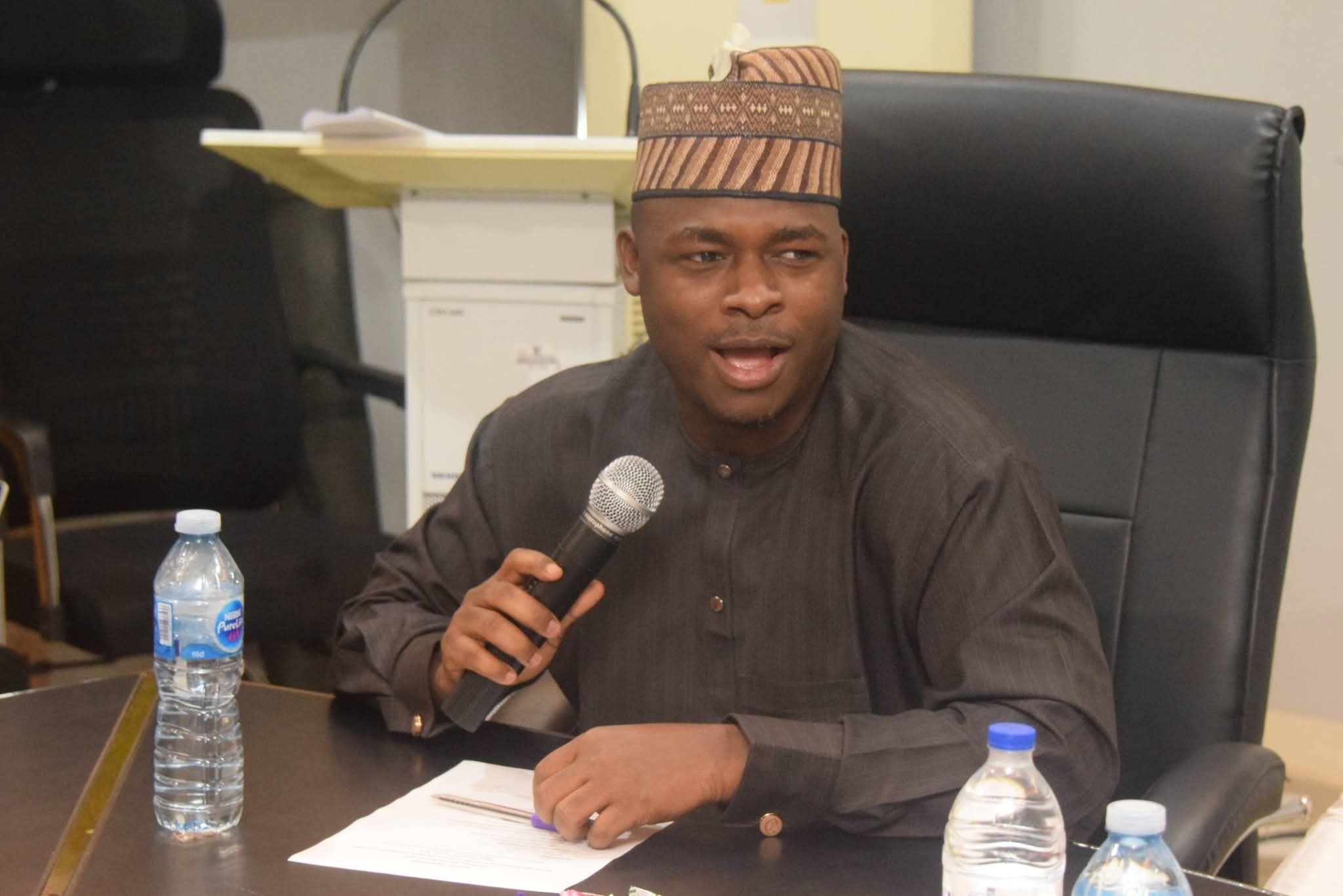Headlines
Waiya decries poor Hausa advertisements by non-Hausa speakers

Nasiru Yusuf Ibrahim
The Commissioner for Information and Internal Affairs, Comrade Ibrahim Abdullahi Waiya, has expressed concern over the increasing trend of non-proficient Hausa speakers advertising products in the Hausa language in a manner that distorts the message and deviates from standard Hausa.

KANO FOCUS reports that the Commissioner made this statement while receiving a delegation from the Advertising Regulatory Council of Nigeria (ARCON) in his office.
He emphasized the need for advertisements in Hausa to be crafted by native speakers to ensure clarity and effective communication with the target audience.
“For an advert to be well understood, it is crucial that native Hausa speakers handle its production to prevent distortion and misinterpretation,” Comrade Waiya stressed.
Waiya reiterated his commitment to strengthening the capacity of Information Officers in the state by ensuring their registration with relevant professional bodies. This, he noted, would enhance their effectiveness and service delivery.
Earlier, the Director, Northern Region, ARCON, described the Advertising Regulatory Council of Nigeria as the apex regulatory body overseeing advertising, marketing communications, and public communication practices in Nigeria.
He explained that ARCON operates under the Federal Ministry of Information and National Orientation with a mandate to promote ethical advertising, act as the conscience of society in commercial communications, and protect consumer interests.
The Director commended the Kano State Government for its support of ARCON and urged the ministry to ensure that all Information Officers in the state are registered members of the council. He emphasized that such membership would significantly benefit the officers in carrying out their duties professionally.

Headlines
Kano business community thanks FG for N5bn Singer market relief

Nasiru Yusuf Ibrahim
Nigeria’s Vice President, Kashim Shettima, on Tuesday received a delegation from the Association of Kano Business Community at the Presidential Villa, Abuja, during a thank-you visit to President Bola Ahmed Tinubu.

KANO FOCUS reports that the delegation expressed appreciation to the Federal Government for its support to traders and other victims affected by the recent fire incident that razed several sections of the popular Singer Market in Kano.

Speaking during the meeting, the Vice President reaffirmed the Federal Government’s commitment to collaborating with the Kano State Government and relevant agencies to prevent a recurrence of fire outbreaks in markets across the state.
He assured the delegation that President Tinubu has the interests of Kano people at heart, noting that the N5 billion approved as immediate relief for victims was based on the findings of a preliminary assessment of the damage caused by the inferno.

Shettima reiterated that the Federal Government would continue to support efforts aimed at restoring commercial activities and strengthening safety measures in markets to protect lives and property.

Headlines
Kano Govt inaugurates 23-member committee to disburse Singer market fire relief

Nasiru Yusuf Ibrahim
The Kano State Government has inaugurated a 23-member committee to oversee the transparent and equitable distribution of financial assistance and relief materials to victims of the recent Singer Market fire disaster.

KANO FOCUS reports that the inauguration was carried out on behalf of the Secretary to the State Government, Umar Faruq Ibrahim, who chairs the committee. The event was presided over by the state Attorney-General and Commissioner for Justice, Abdulkarim Kabiru Maude.
According to the Attorney-General, the committee comprises representatives from key government agencies, security services, the Kano Emirate Council, religious leaders, and affected traders.
He said the panel’s mandate includes assessing the extent of losses, verifying genuine victims, ensuring timely distribution of support, and recommending measures to prevent future fire incidents.
The intervention follows support approved by President Bola Ahmed Tinubu, as well as contributions from the APC Governors Forum. It also comes in addition to earlier assistance provided by Governor Abba Kabir Yusuf and the Deputy Senate President, Barau I. Jibrin.
The state government reaffirmed its commitment to supporting victims of the disaster and restoring commercial activities at Singer Market.

Headlines
Kano Govt announces March 1 for schools’ Ramadan break

Nasiru Yusuf Ibrahim
The Kano State Government has announced Saturday, March 1, 2026, as the commencement date for the Eid-el-Fitr break for all public and private primary and post-primary schools in the state.

KANO FOCUS reports that the announcement, contained in the approved 2025/2026 academic calendar, applies to both day and boarding schools across the state.
According to a statement issued by the Director of Public Enlightenment, Musbahu Aminu Yakasai, parents and guardians of pupils and students in boarding schools are expected to convey their wards home by the early hours of Friday, February 28, 2026.
The statement further explained that boarding school students are to resume on Sunday, March 22, 2026, while day students are to resume on Monday, March 23, 2026.
It added that the second term will continue from Sunday, March 22, 2026, and end on Saturday, April 18, 2026.
The government directed all public and private schools in the state to comply strictly with the directive, warning that non-compliance would be treated as a breach of government instructions.
The Commissioner for Education, Ali Haruna Abubakar Makoda, urged parents and guardians to ensure full compliance with the approved resumption dates.
He appreciated parents and residents of the state for their continued cooperation and support to the ministry, and wished pupils and students a successful completion of the Ramadan fast and hitch-free Sallah celebrations.























